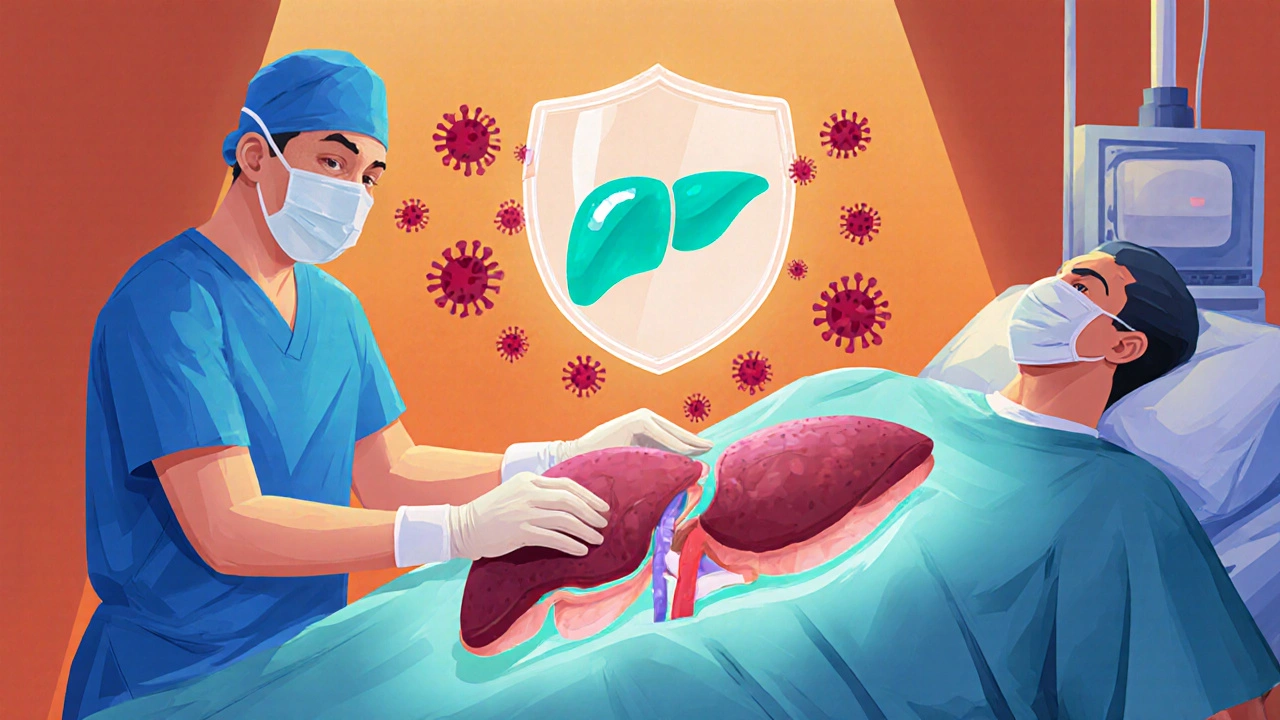Explore how velpatasvir works, its safety, dosing, and clinical evidence for treating hepatitis C in liver‑transplant patients, plus a practical checklist and FAQs.
Liver Transplant: What You Need to Know About the Procedure, Recovery, and Medications
When your liver transplant, a surgical procedure to replace a failing liver with a healthy one from a donor. Also known as hepatic transplantation, it’s often the last option for people with end-stage liver disease—whether from cirrhosis, hepatitis, or genetic conditions. It’s not just about swapping an organ. It’s about starting over—physically, emotionally, and chemically.
A liver disease, a broad term covering conditions like cirrhosis, fatty liver, and autoimmune hepatitis that damage liver function doesn’t always show symptoms until it’s advanced. Fatigue, swelling in the belly, yellow skin, and confusion are red flags. If medications and lifestyle changes don’t help, a transplant becomes the only way to survive long-term. The waitlist is long, and not everyone qualifies. But for those who do, survival rates have improved dramatically over the last 20 years—over 80% live at least five years after surgery.
After the surgery, the biggest threat isn’t the operation—it’s your body rejecting the new liver. Your immune system sees it as an invader. That’s why you’ll take immunosuppressants, daily drugs like tacrolimus or cyclosporine that silence your immune system to prevent rejection for the rest of your life. These drugs save the transplant, but they come with trade-offs: higher risk of infections, kidney strain, and even certain cancers. Monitoring blood levels, avoiding raw foods, and skipping herbal supplements are non-negotiable. One missed dose can trigger rejection, and many patients don’t realize how fragile the balance is until they’re back in the hospital.
Recovery isn’t just physical. Many people feel guilty about receiving a donor organ. Others struggle with the constant need to track pills, doctor visits, and lab tests. Depression and anxiety are common after transplant, and support groups make a real difference. You’ll need to rethink your diet, cut out alcohol completely, and avoid anything that stresses your new liver—even over-the-counter painkillers like ibuprofen can be risky.
What you’ll find in these articles isn’t just theory. It’s real-world advice from people who’ve been through it—how to spot early signs of rejection, which supplements to avoid, how to talk to your doctor about side effects, and what to expect in the first six months. You’ll also see how medications like those used for high blood pressure, cholesterol, or even depression interact with transplant drugs. This isn’t a one-size-fits-all journey. But with the right info, you can take back control—before, during, and after the transplant.

